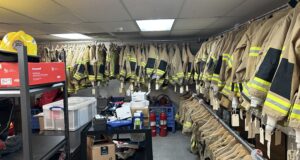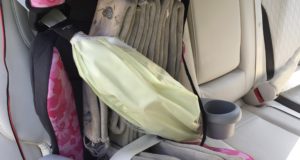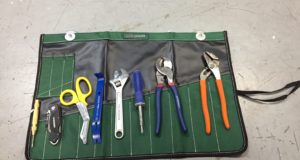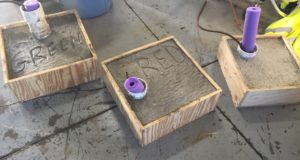Lt. Bronner sent the following notice about getting your cold weather bags together as the temperature drops. If you have a cold weather bag share what you have in it so others can get an idea of what works and what doesn’t. Stay warm.
FIRST DUE TACKLE ON FACEBOOK
COLD WEATHER BAGS
As I am writing this the weather here in northern Ohio, it is a rainy forty-three degrees. If you factor in the wind it is 34 degrees. The weather here is about as unpredictable as any given Sunday when the Browns play. It is about this time of year I do something that I do every year. I go to my locker, dust off, open up, and inventory my cold weather bag.
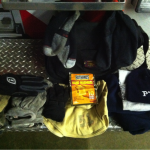 My cold weather bag is a small black bag that rides in the engine with me waiting for that first cold incident of the year. I started carrying the bag after a fire we had at a diary farm a few years back. The temperature was sub-zero and a wind chill in the negative twenties. From that day on I never wanted to be that cold or wet again.
My cold weather bag is a small black bag that rides in the engine with me waiting for that first cold incident of the year. I started carrying the bag after a fire we had at a diary farm a few years back. The temperature was sub-zero and a wind chill in the negative twenties. From that day on I never wanted to be that cold or wet again.
What you put in a cold weather bag is up to you. I like to carry spare gloves, a spare hood, shirts, socks, and hand warmers. Your inventory should be based on your own geography, sector of work, and anticipated needs.
If you already carry a cold weather bag or something similar please comment and share what you are carrying. Guys may make fun of your bag, but trust me, that all stops when they are cold out on a job and would like to use something out of it.
TECGEN EXTREME
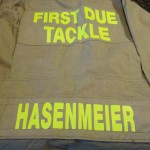
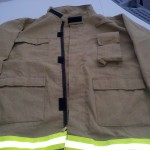 In other news, the folks at TECGEN have asked Smitty over at Boron Extrication and I to review some gear. As we get a chance we will put this gear through the ringer. For us Northerners, it may not be till spring as the temps are falling quickly. The idea to wear lightweight gear for non-structural incidents seems prudent in that it will reduce heat stress dramatically. We’ll keep you posted.
In other news, the folks at TECGEN have asked Smitty over at Boron Extrication and I to review some gear. As we get a chance we will put this gear through the ringer. For us Northerners, it may not be till spring as the temps are falling quickly. The idea to wear lightweight gear for non-structural incidents seems prudent in that it will reduce heat stress dramatically. We’ll keep you posted.
From the TECGEN website: TECGEN EXTREME® garments are UL certified to exceed NFPA 1951 (Technical Rescue) and NFPA 1977 (Wildland Firefighting), making them the perfect choice for the following types of responses:
- Extrication
- Search and Rescue
- MVA
- Junior Firefighting / Explorer Programs
- Wildland, Grass and Brush Fires
- Confined Space
- Trench Rescue
- High / Low Angle Rescue
- Good Will Calls
- Support Personnel
Pass it on!
 First Due Tackle Pass It On – Firefighter, Rescue & Extrication Training
First Due Tackle Pass It On – Firefighter, Rescue & Extrication Training

